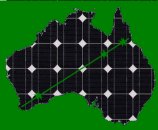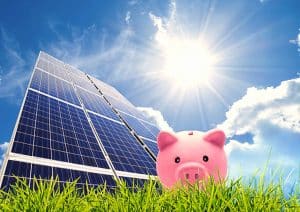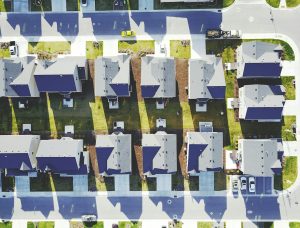For any country, power generation facilities provide a very attractive target for hostile parties or states. Take out a few power plants and you instantly have chaos, severely compromising not only the target, but a massive region beyond. A nation in disarray is a nation that is unable to effectively defend itself.
With the spectre of terrorism continuing to haunt the world and thousands of nuclear warheads on standby ready to unleash unimaginable destruction, the Australian government would be prudent to be thinking more about decentralising power generation – and the solution is already available. The answer environmentally friendly, has the capacity to boost our threatened economy and generate tens of thousands of jobs while providing a degree of energy security well into the future.
The source is solar energy and the technology is grid connected solar power.
In a grid connect solar power system , individual houses and businesses can become mini-power plants, providing the premises with electricity via rooftop solar panels. Any surplus generated can be automatically exported into the mains power grid for use by other buildings and facilities in the local area.
Whereas coal-fired and nuclear power plants are incredibly expensive to build and repairs to a damaged facility can take a very long time, that’s not the case with an electricity sub-station that may be destroyed. Additionally, a damaged nuclear power station poses huge environmental and safety threats. In incidents such as Chernobyl, a large area can become uninhabitable for decades.
While the focus on solar energy in recent times has been mainly centred around environmental issues such as greenhouse gas reduction, harnessing solar energy on a grand scale in Australia could also be viewed as a defence initiative, providing an additional layer of energy security for Australia in case of attack.
The beauty of a solar energy defence initiative is that so many non-military affiliated Australian citizens can get involved in the security of the nation. Australia’s rooftop real estate resource is vast and we live in a sun-drenched country. All it will take is sufficient incentive to mobilise the population. While the Australian government’s solar rebates have helped the uptake of solar power, what is really needed is a national and uniform gross feed in tariff program where home and businesses owners are paid a premium on the electricity they produce, allowing them to recoup their investment.
Australia’s defence budget is ranked the 13th highest in the world. For the financial year of 2008-2009, Australian taxpayers will spend 20.3 billion dollars in this area alone, not including expenditure in other national security related departments.
Perhaps some of those billions could be re-directed to a solar energy based defence and energy security system rather than some of the questionable military hardware projects that continually blow out in terms of budget, have limited functionality – and sometimes fail altogether.







































